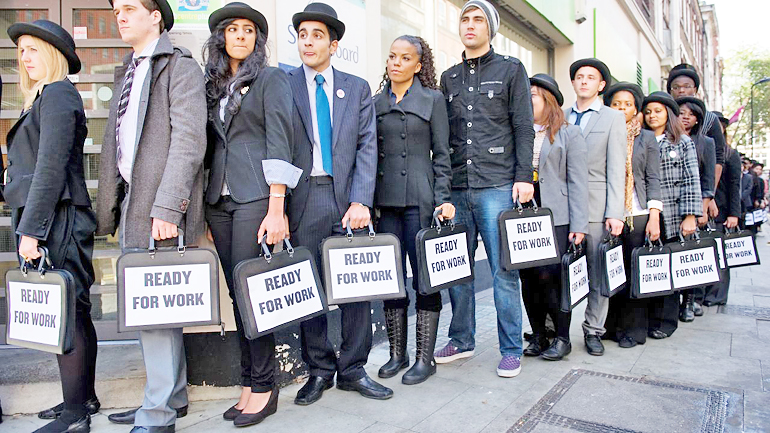LONDON (AFP) – United Kingdom (UK) unemployment is steady but wages have tanked further, official data showed yesterday, as sky-high inflation sparks a cost-of-living crisis and growing industrial unrest.
The unemployment rate was unchanged at 3.7 per cent in the three months to the end of November compared with the three months to the end of October, the Office for National Statistics (ONS) said in a statement.
However, wages in real terms sank 2.6 per cent as runaway inflation continued to bite.
“The real value of people’s pay continues to fall, with prices still rising faster than earnings,” said ONS director of economic statistics Darren Morgan.
“This remains amongst the fastest drops in regular earnings since (comparable) records began” in 2001.

Britain has been plagued by strikes in public and private sectors, as pay fails to keep pace with rampant prices.
A total of 467,000 working days were lost due to strikes in November, reaching the highest level since 2011, the ONS added.
Key affected areas included communication, transport and education. Industrial action looks set to intensify as Britain’s largest teaching and nursing unions on Monday announced further walkouts over pay, while the government seeks to limit strikes with a controversial bill.
The ONS will publish crucial December inflation data today. Inflation soared in November to 10.7 per cent, the highest level for around 40 years, with prices surging on supply constraints caused by Russia’s invasion of Ukraine, the lifting of pandemic lockdowns and Brexit fallout.
The UK government argues that lifting pay would risk stoking inflation. “We must not do anything that risks permanently embedding high prices into our economy, which will only prolong the pain for everyone,” said Finance Minister Jeremy Hunt in response to yesterday’s data.






